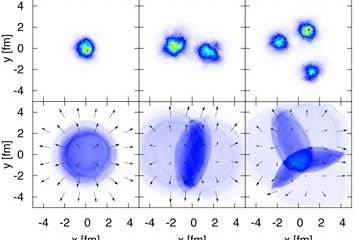
Nature can do it, and chemists in the lab often dream of doing it: producing substances simply and ecologically – as far as possible without any undesirable…
The adamantane moiety is a very versatile chemical core-structure. It is e.g. incorporated in medically active compounds like Vildagliptin®, a remedy against diabetes.
The innovation presented here provides a new and straightforward way for synthesizing this new class of 1,2-substituted dia-mondoids, which can well be used as intermediate starting ma-terials for further chemical synthesis.
Surface activation or cleaning by cold plasma is getting more and more attention. Current plasma-based solutions for flexible materials however lack efficiency or are technically too complex and error-prone. Scientists at the HAWK developed a plasma roller device for effective and fast plasma treatment of flexible materials.

Gum 56 — also known as IC 4628 or by its nickname, the Prawn Nebula — is named after the Australian astronomer Colin Stanley Gum, who, in 1955, published a…

The Relativistic Heavy Ion Collider (RHIC), a particle collider for nuclear physics research at the U.S. Department of Energy's (DOE) Brookhaven National…
The invention describes a CAR which recognizes CD30 as a target antigen and initiates lysis of CD30-positive (CD30+) tumor cells but not of CD30+ healthy cells like hematopoietic stem cells. Specific genetic modifications of the anti-CD30 CAR ensure the specific targeting of CD30+ tumor cells and prevent unwanted side-effects. This approach has been tested in vitro with CD30+ hematopoietic stem cells and CD30+ tumor cells and in vivo in mice transplanted with human CD30+ hematopoietic stem cells. In vivo experiments provided evidence that the treatment with anti-CD30 T-cells has no unwanted impact on the endogenous immune system. Thus, the CAR is most suitable for clinical application in targeting CD30+ leukemia and lymphoma cells. A clinical study phase I is planned for early 2016, indication: cutaneous T-cell lymphoma.